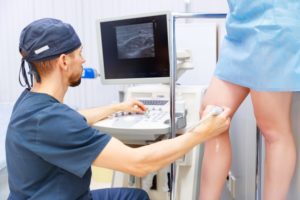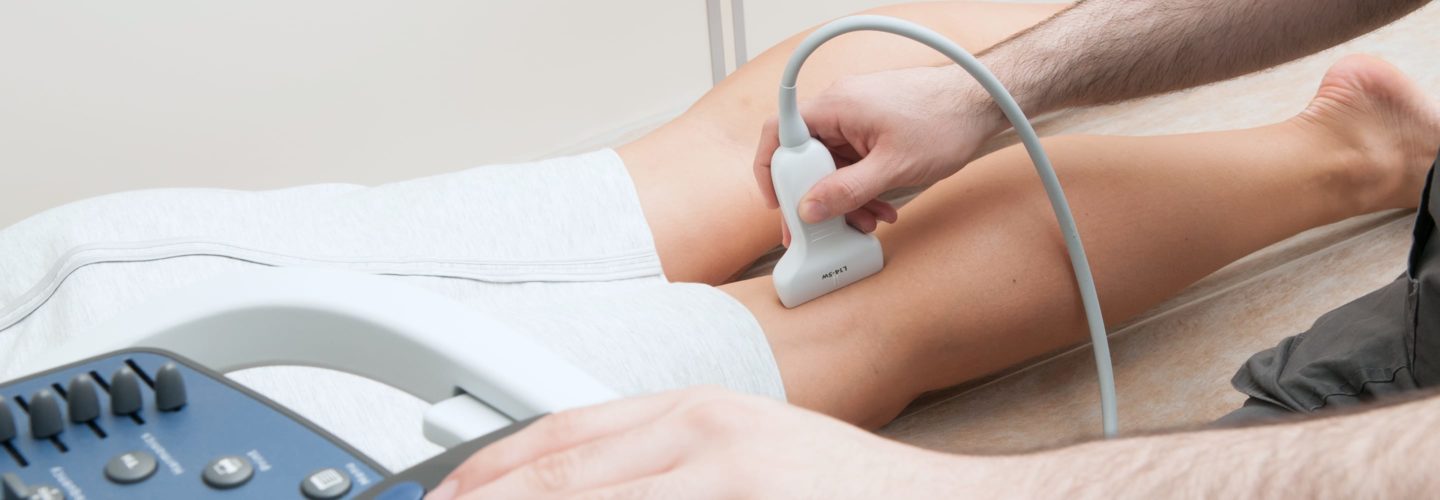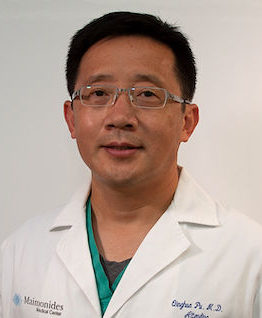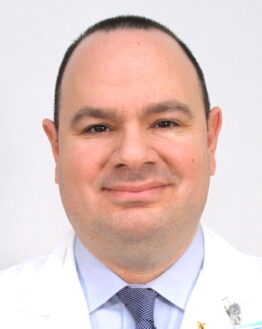Advanced technology to treat vein conditions
Patients who have vein conditions often feel pain, heaviness, burning, or aching in their legs, or notice color changes to their skin, making it difficult to perform everyday tasks. The Maimonides Vein Center is composed of some of the best cardiovascular specialists in the nation, offering treatments for chronic venous insufficiency, deep vein thrombosis (DVT), and varicose veins. Hybrid operating rooms and advanced technology allow our staff to coordinate care and provide you with better surgical outcomes.
Chronic venous insufficiency
Chronic venous insufficiency is caused when the venous walls or valves in the leg are not working effectively and can increase pressure on the veins and result in blood pooling in the legs. Signs and symptoms can include pain, heaviness, swelling in the legs, change of color in the leg—usually darkening of the skin, and/or non-healing ulcers on the ankles and legs. Chronic venous insufficiency can be diagnosed by our specialists through a physical exam or duplex ultrasound testing.
Chronic venous insufficiency can be treated with compression stockings, or our heart surgeons can perform a minimally-invasive procedure. This minimally-invasive treatment technique uses vein ablation (radiofrequency energy) to close superficial veins, or the varicose veins can be removed using catheters and wires inserted into the veins. The benefits of this minimally-invasive procedure are less pain and scarring, and a quicker return to normal activities.
Deep vein thrombosis (DVT)
DVT results from a clot forming in a major vein, usually in the legs. These clots carry the risk of breaking loose from the vein and being carried to the lungs. An injury can cause DVT to a vein, certain medications, and limited movement—in short, anything that prevents blood from circulating normally. Risk factors include inherited diseases, prolonged bed rest, surgery, pregnancy, heart failure, overweight or obesity, smoking, and others.
DVT symptoms include pain and swelling in the leg. Legs can also show signs of red, discolored, or warm skin. Treatments for DVT include a minimally-invasive technique similar to how Chronic Venous Insufficiency is treated, or blood-thinning medications, as well as newer anti-clotting medications called Xa inhibitors.

Varicose veins
Varicose vein symptoms include dark purple or blue veins, often with a twisted or gnarled appearance. Painful signs can include an achy or heavy feeling in the legs, burning, throbbing, or muscle cramping, itching around the veins, and discoloration or hardening of the veins. If you have ulcers (sores) around your ankles, see a vein specialist right away, as this may indicate a more serious condition.
Varicose and spider vein treatments include sclerotherapy and laser surgery (both of which cause the veins to disappear slowly), as well as various vein removal techniques, including high ligation and vein stripping. Varicose vein surgery is usually performed on an outpatient basis.
Sclerotherapy is a procedure that is effective in treating the early stages of both varicose and spider veins. Catching this early can prevent additional complications such as swelling or excessive bulging. An ultra-fine needle is injected into the vein with a foam chemical that irritates the lining of the vein, allowing it to close. Spider veins on the legs are usually treated with sclerotherapy first and laser therapy as an additional treatment.
Endovenous Laser Treatment (EVLT) uses a device that sends a thin beam of radiation in the form of light. EVLT is a procedure that closes and shrinks the varicose vein and causes scar tissue to form within the vessel, thereby reducing the enlarged veins.
Phlebectomy treatment for varicose veins requires only local anesthesia. The veins are removed through small punctures and require no stitches. Phlebectomy is often performed along with the other procedures to remove any large surface veins left behind after the vein is closed.
Coordinated care utilizing our hybrid operating rooms
The Vein Center provides comprehensive, coordinated care in state-of-the-art hybrid operating rooms allowing multiple surgical specialists to work alongside each other at the same time, which maximizes outcomes for our patients.
Call (718) 283-7957 to make an appointment with a vascular specialist



